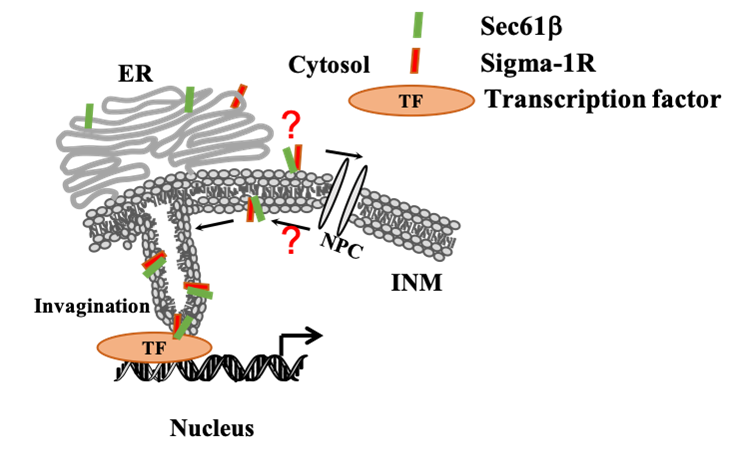Main research topics of the Center
The Center contains seven subdivisions: Neuroscience labotory, Neuromodulation, Clinical department, AI for Neurology, Stroke, Neuroimaging and signal analysis, and Cognitive neuroscience.
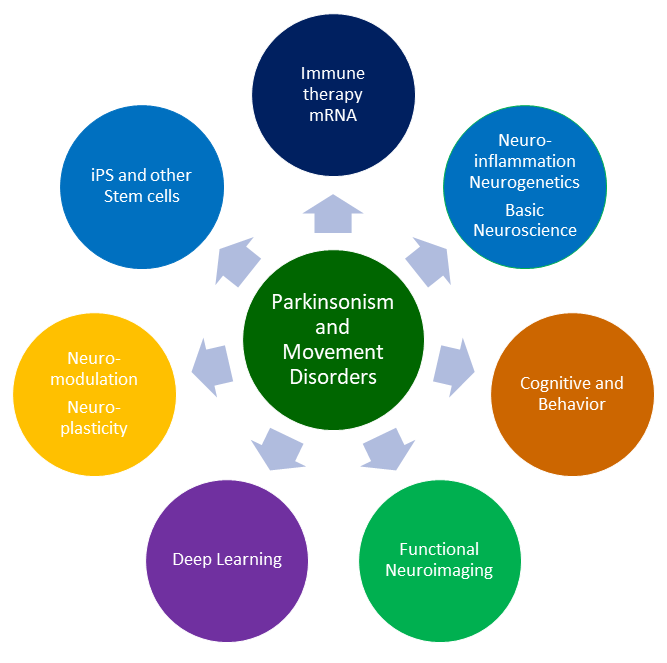
Research Projects
1. The application of induced pluripotent stem cells (iPSCs):cell therapy, drug screening and development, and the study of the mechanisms of the diseases
 (1)利用突觸核蛋白(alpha-synuclein A53T mutation) 基因轉殖小鼠,製作出突觸核蛋白基因突變的iPS細胞,之後結合細胞治療與基因治療 (siRNA knockdown),用於發展iPSCs用於帕金森氏症的治療模式。
(1)利用突觸核蛋白(alpha-synuclein A53T mutation) 基因轉殖小鼠,製作出突觸核蛋白基因突變的iPS細胞,之後結合細胞治療與基因治療 (siRNA knockdown),用於發展iPSCs用於帕金森氏症的治療模式。
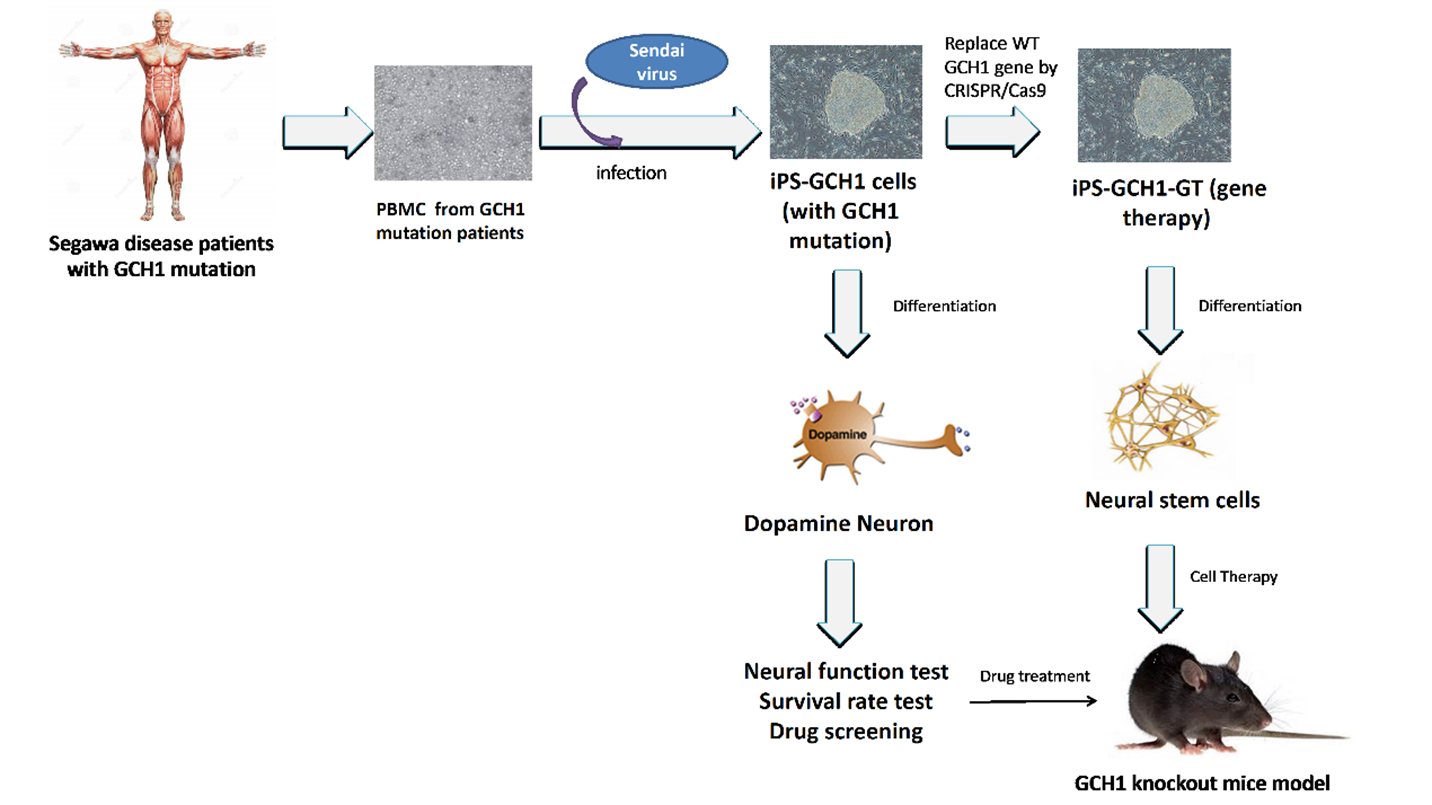 (2)利用瀨川氏症(Segawa disease, GCH1基因突變)病人的體細胞,製作出病人特異性的誘導性多能幹細胞,結合細胞治療與基因編輯技術(CRISPRC/Cas9),用於治療瀨川氏症,且病人的細胞可以用於建立篩要平台,找出新的治療瀨川氏症治療藥物。
(2)利用瀨川氏症(Segawa disease, GCH1基因突變)病人的體細胞,製作出病人特異性的誘導性多能幹細胞,結合細胞治療與基因編輯技術(CRISPRC/Cas9),用於治療瀨川氏症,且病人的細胞可以用於建立篩要平台,找出新的治療瀨川氏症治療藥物。
2. Use Next Generation Sequencing (NGS) to detect 37 neurological diseases
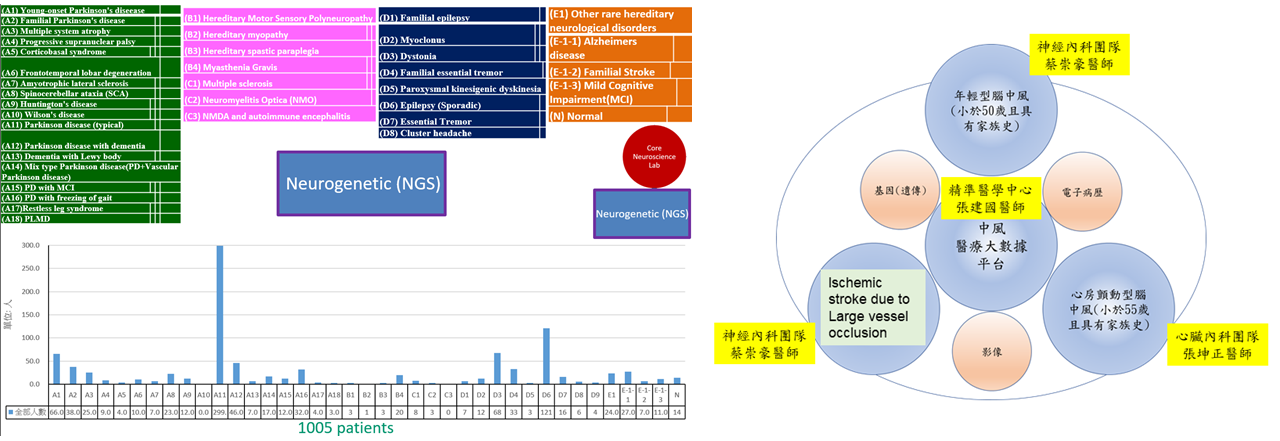
3. Mark and trace the single neuron activated by learning or sensory stimulation
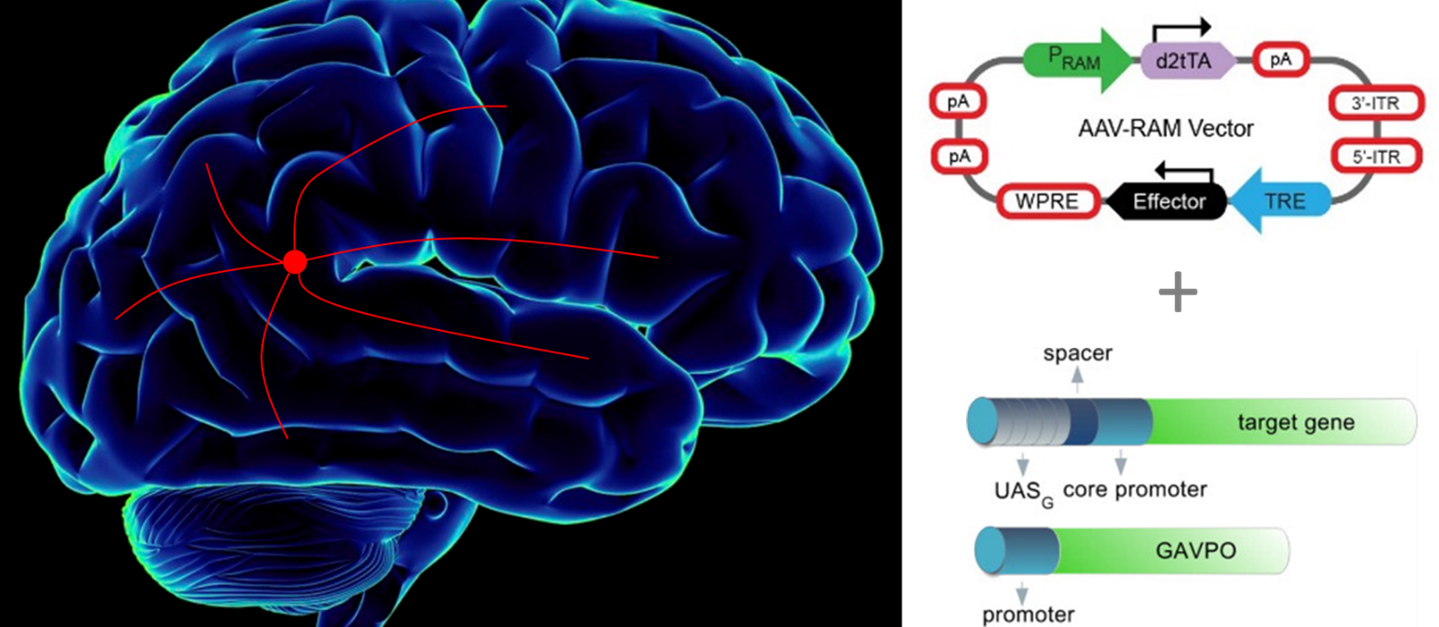
4. Mark the synapse activated by learning or sensory stimulation

5. The regulation of glia cells in CNS: Transcription factors, white matter injury, and glioblastoma
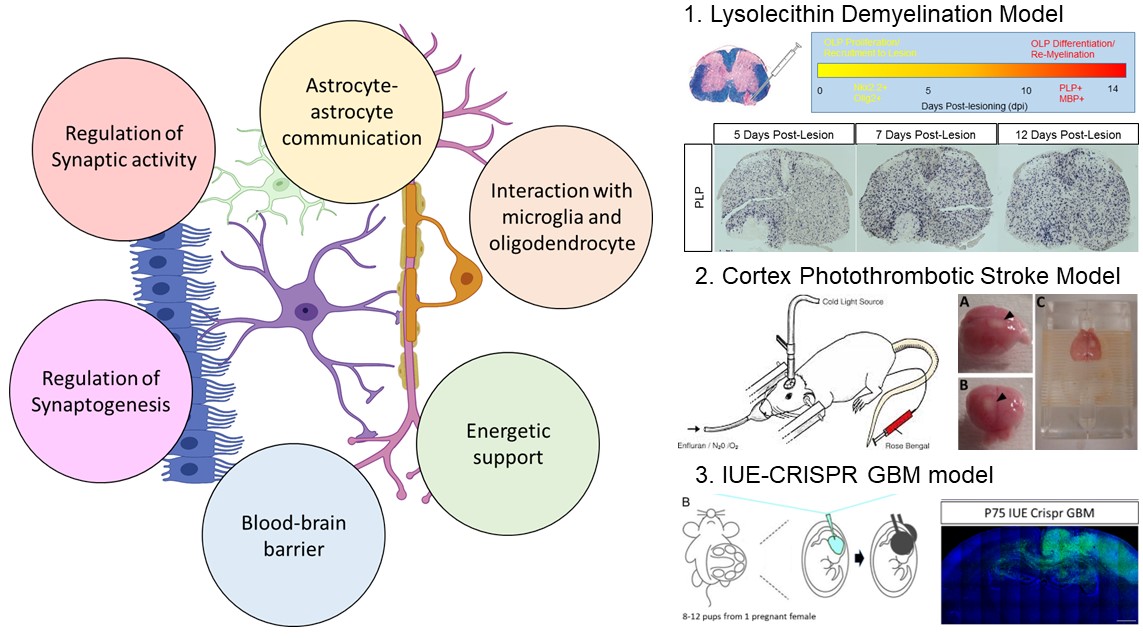
6. Drug delivery system for immune and mRNA therapy
 (1)以藥物傳遞系統結合標靶分子、免疫調節因子、或包覆多種藥物,進一步整合光/熱/聲/電..等物理特性之設計,來達到新世代的一站式療法。
(1)以藥物傳遞系統結合標靶分子、免疫調節因子、或包覆多種藥物,進一步整合光/熱/聲/電..等物理特性之設計,來達到新世代的一站式療法。
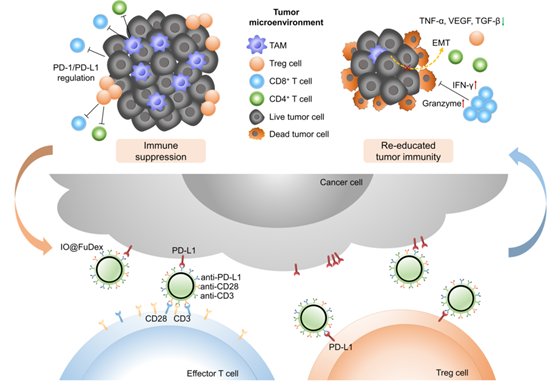 (2)以本體即帶有免疫調節能力之功能性藥物載體來逆轉腫瘤免疫微環境
(2)以本體即帶有免疫調節能力之功能性藥物載體來逆轉腫瘤免疫微環境
6. Artificial neural network and deep learning
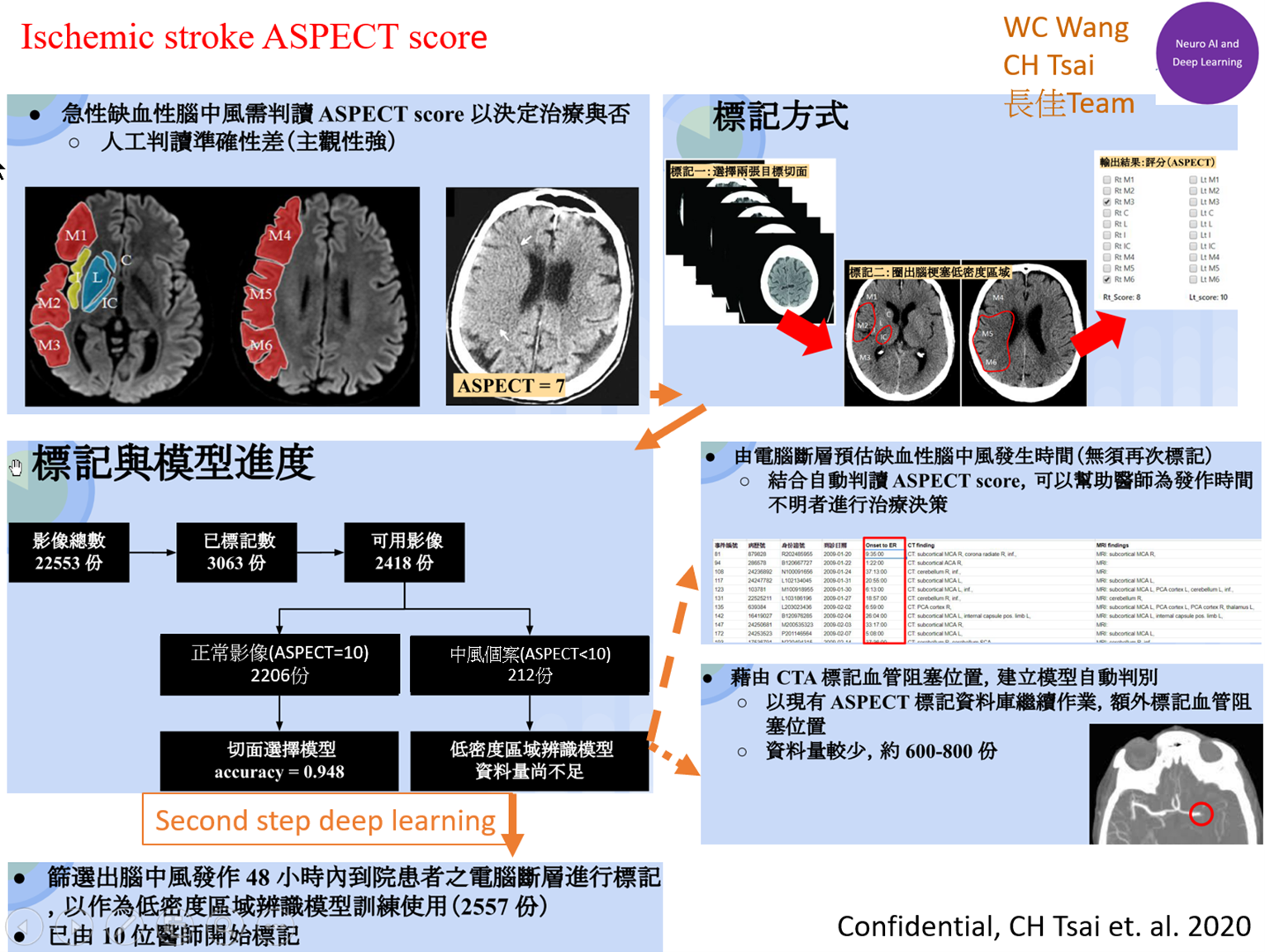 因著近幾年的發展人工智慧和系統生物學開始被應用到神經科學領域。在未來我們將聚焦於神經疾病之大數據分析,波型訊號分析,神經影像,次世代基因及生物資訊分析。動態影像及超音波自動偵測動脈狹窄,中風病患ASPECT 分數的判定,整合人機之動作障礙疾病診斷即時輔助系統亦為計劃發展的項目。我們亦將和美國NIH 合作發展腦影像判讀及疾病預測的模式。
因著近幾年的發展人工智慧和系統生物學開始被應用到神經科學領域。在未來我們將聚焦於神經疾病之大數據分析,波型訊號分析,神經影像,次世代基因及生物資訊分析。動態影像及超音波自動偵測動脈狹窄,中風病患ASPECT 分數的判定,整合人機之動作障礙疾病診斷即時輔助系統亦為計劃發展的項目。我們亦將和美國NIH 合作發展腦影像判讀及疾病預測的模式。
初期有以下三個主題預計進行:(1)改進疾病診斷及預測的精準度-需整合多項資料如病歴,次世代基因結果,影像等等。(2)暸解神經疾病的分子機制-需整合表觀基因,基因結果,系統生物學。(3)發展雙胞數位複製系統以模擬生理及病態之活動。
7. Neuroinflammation, Neurogenetics, Basic Neuroscience
(1)To investigate the Sigma-1 receptor stabilizes nucleoporin expression and facilitates nucleocytoplasmic transport function in C9orf72 ALS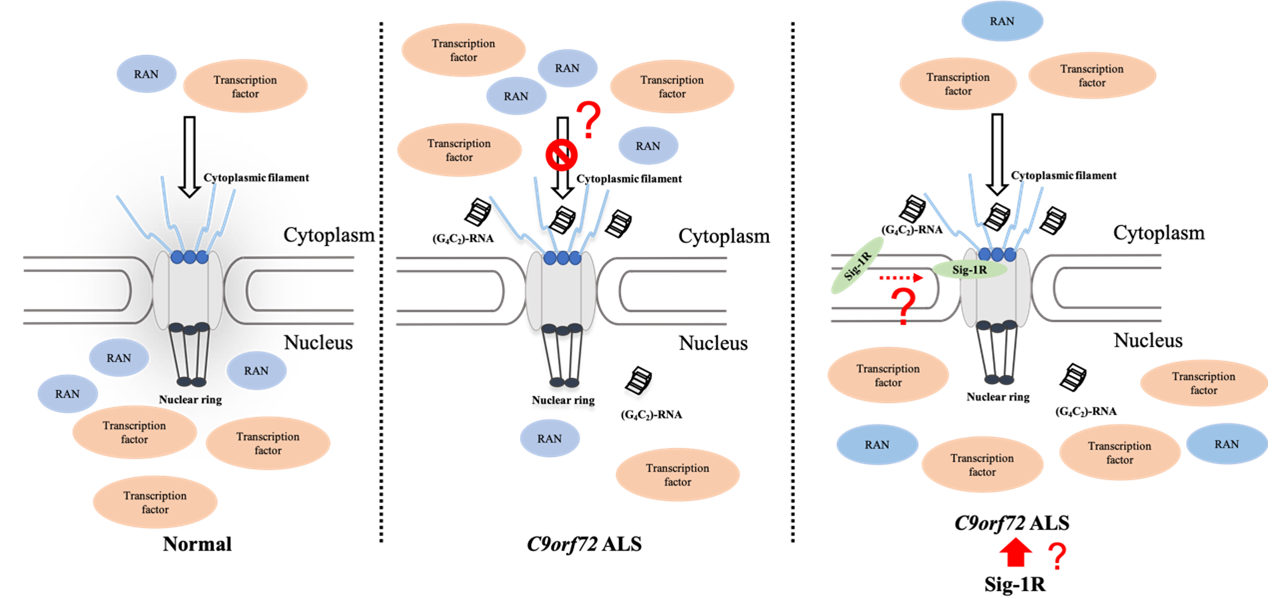
(2)To investigate Sigma-1 receptor may act as novel transcriptional co-factor to regulate gene expression